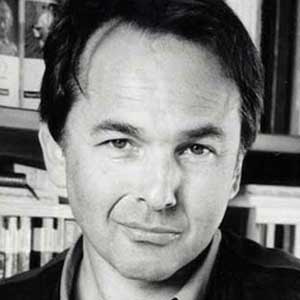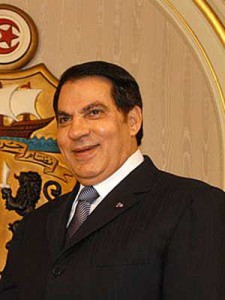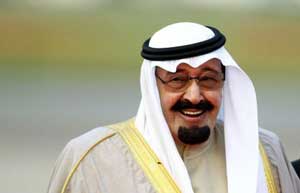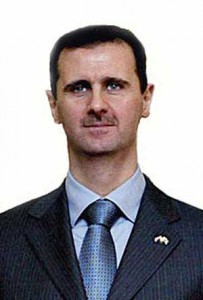An Interview with Gilles Kepel
 (Credit: http://gilleskepel.weebly.com/)
(Credit: http://gilleskepel.weebly.com/)
06/09/2011 – Second Line of Defense’ Robbin Laird sat down with Gilles Kepel in Paris and had a wide-ranging discussion on trends in the Middle East. At the heart of the discussion was a clear argument that any simplistic assumption that there is an Arab Spring should be challenged.
History was moving again in the Middle East, but the dynamics of change are quite different in each part of the Arab Middle East. As Kepel put it: “Although people were expecting a domino effect from events in Tunisia, the dynamics should not be interpreted that way.”
Kepel divided the discussion of three distinct dynamics of change. The first involved North Africa with a focus on Tunisia. The second focused on Saudi Arabia. The third focused on Syria.

Tunisia
With regard to Tunisia, Kepel emphasized that is was the coalition of the protestors with the urban middle class, which has made change in Tunisia possible.
The slogan of the Tunisian revolt was “Dégagé, go, leave.” By which was meant the need to get rid of the corrupt ruler of Tunisia.
He was after all a cop and he was extorting everybody. He could not start a business in Tunisia that could reach a certain level without having one of his in-laws on the board.
Tunisia is a place where you have an urban, educated elites, that decided one day that they would join forces with the poor. And that coalescence created the revolution.
The Army played a key role in the process and when the Army refused to support the ruler, his days were numbered.
I have been to Tunisia many times, and the ones who invited me were the military. The military was the only place where you can talk. They had some freedom, as opposed to the university, to the press, which were totally suppressed.
(Photo Credit: http://en.wikipedia.org/wiki/Zine_El_Abidine_Ben_Alii)
The current situation is that “the Tunisian revolution, which is now temporarily, under the control of the young entrepreneurial middle class. If they can deliver, then will stay on the front line. The issue is whether or not they can, because the economy is in shambles.”
In addition to the economic situation, there is pressure from the insurgency in Libya. Berbers who live in both Tunisia and Libya are a key pressure group within Tunisia itself.
And it’s mainly Berbers who are very, very strong Tunisia and Libya who have decided to oust Ben Ali, who considered them as non-existent. There is something in the making in Tunisia and Libya driven by the Berbers.

Saudi Arabia
Kepel underscored the necessity of change in Saudi Arabia, but the difficulties to do so. Internal dynamics within the regime are part of the challenge, and the pressures from Yemen are another.
Saudi Arabia is between the hammer and the anvil. The hammer is Iran. The anvil is Yemen. The Yemenis population is more numerous than the indigenous Saudi population. The Saudi’s are very, very worried about the future of Yemen and the pressures of disintegration from Yemen upon Saudi Arabia.
The Saudi system won’t last. When King Abdullah came back, from Morocco after he had had surgery, in New York, he opened the coffers and gave $37Billion, with a “B”, dollars to the populace, and added another $70 Billion, with a “B”, three weeks later. And this hundred billion thing illustrates the discrepancy between governance and capacity of the system, and the expectations.
(Photo Credit: http://americanbedu.com/2011/01/26/saudi-arabiaaustria-king-abdullah-funds-vienna-center/)
The generational shifts within the royal family will play a “forcing function” role in driving change.
Now, they have the 2nd generation, i.e. you have full brothers and half brothers, it’s complicated enough.
The third generation will mean that you have cousins. And can you keep sufficient level of cohesiveness within the ruling family or not?
If not, you have to think of a different way of managing the system. And this is a big, big issue for the future.

Syria
The third area discussed was the area dominated by the Israeli-Arab conflict, ranging from Iraq to Jordan. The fragmentation of Iraq with the invasion of Iraq as well the potential for Syrian fragmentation provides a spill over effect into the region.
Assad, the father, was able to turn Syria from an area which was everyone’s geopolitical or ethnic playground into a regimented state, similar to what Saddam had done in Iraq. Assad used a leading role in the confrontation with Israel to pressure other states in the region such as Saudi Arabia into giving him support.”
But the process of change in Syria will not be like Tunisia or Egypt where the role of the Army leadership is so central and where “they’re a reflection, to some extent, of their societies.”
In Syria, the efficient part of the army is entirely otherwise than in Egypt. Air Force, Special Forces, tanks, and the like. The ones who were sent to Lebanon to man the check points were in rags or your average soldier. Those guys don’t even have weapons; if they have weapons they have no ammunition.
And, so there is no chance that the hard core Syrian army staged a process to push Bashar al-Assad, the son, out. Or if they say that, it’s because they think he’s too weak and he makes too many concessions.
(Photo Credit: http://en.wikipedia.org/wiki/Bashar_al-Assad)
The Sunnis, which make up more than 70% of the Syrian population, with the Alawites are the pre-dominant Shia group, are reluctant to follow the protestors. This is quite unlike the situation in Tunisia.
The Alawites at worst will go back to their mountains, which is where they lived under the French mandate in Syria, when the state of the Alawites, was partially emerged into French Syria. And every village there is lined with weapons with ammunition.
The Damascus bourgeoisie know this and fear that it’s going to be the end if this happens. That you know, they will be killed before they kill the others.
Syria may be in a situation of major turmoil for quite sometime, because there is, as of now, no one really that can bridge the gap between the two. And the Alawites possess strong men who are aware that the Sunni middle class is worried. Therefore, they are not going to yield.
Bashar al-Assad, the man is very decent, personally. He’s a young, well-educated, Europeanized person, London educated; I spent some time with him in Paris, soft spoken. Listens to you, talks, exchanges ideas but he has to play the role for which he was designed by the system. He has Hamlet’s qualities, and so this is where we are now. But I’m an optimist—a no nonsense optimist.

